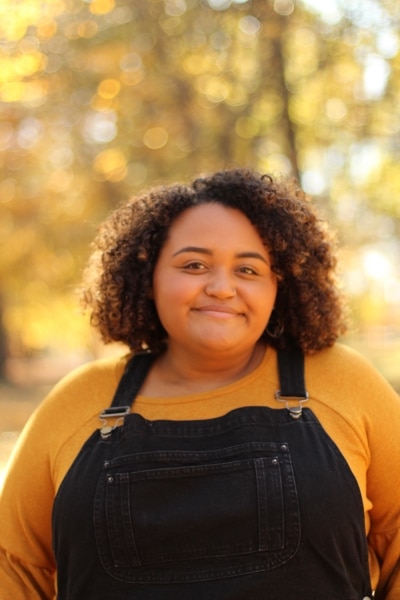PAAH Summer Program Interns: Abigail Posey
My name is Abigail Posey and I’m a senior at the University of Louisville studying History and Pan-African Studies with minors in Political Science, Social Change, and Spanish. I focus primarily on enslavement in the Americas, though most of my recent work has been about the southern United States. Within that focus, I’m interested in health, medicine, and economics. I will be graduating in May of 2021, and I plan to spend the fall semester applying to PhD programs. Ideally, I would be teaching upon completion of my doctoral degree, but I am also interested in creative projects.
This is my second time researching at the Library Company. I was a Mellon Scholars Workshop Participant in June of 2019 and absolutely loved my experience. The opportunity came at just the right time; I had just begun to seriously consider a career in history but wasn’t sure what that entailed or how to get there. Being at the Library Company was my first real experience in a reading room handling primary sources that were relevant to my interests, and I knew immediately that I wanted to return as soon as possible. Working as an intern this month has allowed me to practice the skills that I developed during my first trip to the Library Company, even if I can’t be there in person this time around.
As my fellow interns and I have been working from our respective homes this month, I’ve been thinking often about physical space and how it relates to health. Whether it be a cancelled summer trip or taking online classes, COVID-19 has limited our options for movement in one way or another in order to protect our health. At the same time, the ability of some to social distance has been influenced by issues of race, location, and access. This is especially true for Black people, who have faced the worst consequences of the pandemic in the United States. It was only fitting to choose this theme for my section of the exhibit.
The section of the exhibit that I’ve been working on is titled “No Space to Move,” a phrase that Harriet Jacobs used to describe the attic where she hid before she escaped from enslavement. It focuses on the ways in which free and enslaved Black people found themselves forced into places that negatively impacted their health in the late eighteenth and nineteenth centuries. Colonization and enslavement were marked by disease and death, and illness manifested itself in the cramped, dirty conditions of slave pens and the lack of sanitation in large cities. Considering the connection between physical space, race, and pandemics calls attention to what we think of today as social determinants of health.



